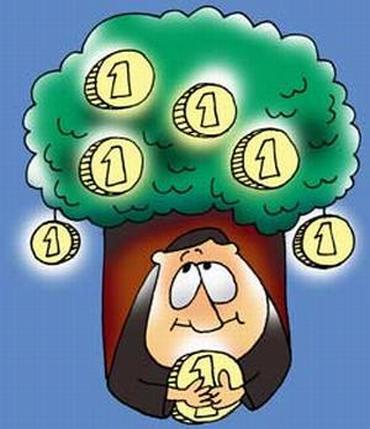Photographs: Uttam Ghosh/Rediff.com Rajiv Raj
Often made, these mistakes can send you down the dark alleyways of debt
It may be due to lack of knowledge, confusion or carelessness; mistakes while managing finances are all too common. The resultant fallout can be detrimental, no matter what the cause. Even a single slip-up in repayments can result in higher interest rates, lower credit limits, unwanted fees, even worse a fall in the credit score. Here are six important debt mistakes you must avoid.
Diminish your wants or augment your means: Benjimin Franklin
Raghav Reddy, 29-year-old IT professional has recently had a baby. His wife Sushma quit her job to look after the child. Raghav wanted to now put down some permanency in his life. He brought a large 4-bedroom flat and invested in mid-range sedan car -- both with the help of bank loans.
Though his salary covered the EMIs, his disposable income was now considerably lower. Add to that, he did not have any savings and his investments were a bare minimum made to save on tax. With his wife's income now being nil, Raghav resorted to having a heavier credit card spending and soon enough he was unable to make full payments at the end of the month setting him on the downward spiral of debt.
Here are mistakes that are made often that can send you down the dark alleyways of debt.
The author is a credit expert with 10 years of experience in personal finance and consumer banking industry and another 7 years in credit bureau sector. Rajiv was instrumental in setting up India's first credit bureau, Credit Information Bureau (India) Limited (CIBIL). He has also worked with Citibank, Canara Bank, HDFC Bank, IDBI Bank and Experian in various capacities.
6 debt mistakes that can ruin your finances
Photographs: Dominic Xavier/Rediff.com Rajiv Raj
1. Not keeping an account of where your money goes
Just where does my money go?"
So many of us are short of funds before the month is over and we have no idea where it has gone. It is simple enough to find out.
Keep a track of your expenses especially the major ones. Keep a fund for petty cash expenses so you do not have to account for the small expenses. Once you know where your money is being spent it is easier to tailor your spending to fit into your budget.
2. Dipping into your emergency fund for non-emergency expenses
Emergency funds are meant for... well, emergencies. Taking a holiday, buying an iPhone or even investing is not to be considered an emergency. If your emergency fund is depleted, in a real crisis situation you will end up borrowing from very high interest sources which start the pile up of debt.
6 debt mistakes that can ruin your finances
Photographs: Dominic Xavier/Rediff.com Rajiv Raj
3. Not using credit
While using excessive credit and falling into debt is certainly detrimental, equally bad is not using debt at all. Wise use of borrowing helps you build up your credit card score.
The bank submits a summary of your borrowing and repayment activities to CIBIL and this helps them assess your credit standing for further borrowings. A higher CIBIL score and a good CIBIL rating would mean better rates offered to you for future borrowings.
4. Consistently spending close to your credit limits on your credit card
Excessive credit-card debt can lower your CIBIL score by 80 or more points and maxing out on your credit card will damage your credit score even more.
Credit bureaus like CIBIL reduce the score by assessing the credit utilisation ratio. The credit-utilisation ratio looks at how much debt a person is carrying compared with how much credit they have available overall.
6 debt mistakes that can ruin your finances
Photographs: Dominic Xavier/Rediff.com Rajiv Raj
5. Making minimum payments on your credit card
Credit cards calculate your minimum payment as a percentage of your outstanding balance. So the minimum payment is a small percentage of the total debt you owe.
To add to it, every month interest is charged on the outstanding payment as well as any additional spending at a whopping rate of 36-40 per cent per annum. So you are in fact adding to your current outstanding.
In addition paying the minimum balance and delaying paying also brings down your credit score.
6. Borrowing to repay
In case your EMIs or other payments are delayed, after a couple of months of grace period the bank will start pressurising you to make payments. To ease off the pressure you may be tempted to borrowing from another source to meet that payment.
This however may be a huge mistake as it means additional debt. Instead, negotiate with your bank for an extended credit period and wavier of some charges.






article